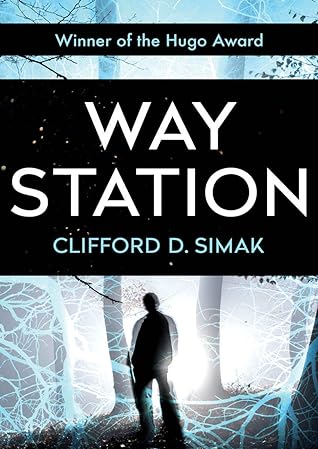More on this book
Community
Kindle Notes & Highlights
There were proud names that were the prouder now, but now no more than names to echo down the ages—the Iron Brigade, the 5th New Hampshire, the 1st Minnesota, the 2nd Massachusetts, the 16th Maine. And there was Enoch Wallace.
He was still alive.
“Damn it, man,” Claude Lewis said, “you can’t deny the proof—the little that I have.”
“His name,” said Lewis, “is Enoch Wallace: Chronologically, he is one hundred and twenty-four years old.
He was born on a farm a few miles from the town of Millville in Wisconsin, April 22, 1840,
He was with the Iron Brigade, which was virtually wiped out at Gettysburg in 1863.
“You say he looks like thirty.” “Not a day beyond it. Maybe even less than that.”
“How come you were assigned? How does Intelligence get involved in a deal like this?”
“I’ll admit,” said Lewis, “that it’s a bit unusual. But there were so many implications …”
“It took two years of work.” “But now you know the story.” “Not all of it.
He must get money somewhere.”
“Every five or ten years or so he ships off a fistful of gems to an outfit in New York.”
he subscribes to a lot of daily papers and news magazines and to dozens of scientific journals. He buys a lot of books.”
he does a lot of writing. He buys these big, bound record books, in lots of a dozen at the time. He buys ink by the pint.”
one afternoon the old man went out to mow a hayfield. The horses ran away. Something must have scared them. Enoch’s father was thrown off the seat and forward, in front of the sickle bar. It was not a pretty way to die.”
“It took two years to do it. I infiltrated them. I bought a beat-up car and drifted into Millville and I let it out that I was a ginseng hunter.”
“The kind of simple soul,” said Hardwicke, “those folks could understand. A sort of cultural throwback. And inoffensive, too. Perhaps not quite right in the head.”
the Fisher family. They live down in the river bottoms below the Wallace farm,
The Fishers are a coon-hunting, catfishing, moonshine-cooking tribe.
He was a rugged man and there still was much of the soldier in him—old
for a single instant it seemed to him the house stood in a special light, as if a rare and more distilled essence of the sun had crossed the gulf of space to shine upon this house and to set it apart from all other houses in the world.
it stood prim and neat, with no peeling paint, with no sign of weathering, and no hint of decay.
Against one end of it was a smaller building, no more than a shed, as if it were an alien structure that had been carted in
it was not a simple shed. It apparently was the place where Wallace lived.
he grasped the knob and turned—except he didn’t turn it;
as if the knob was covered with some hard, slick coating,
There was something covering this house which made it slick and smooth—so smooth that dust could not cling upon its surface nor could weather stain it.
The windows were black. There were no curtains, no drapes, no shades; they were simply black rectangles,
the blackness, curiously enough, had no reflective qualities.
It was no longer just a structure. It wore a personality, a mocking, leering look, and there was a malevolent chuckle bubbling inside of it, ready to break out.
Lewis ducked into the orchard
picking an apple here and there,
there was none of them that was fit to eat,
he had stumbled on the Wallace family burial plot. But there should have been only the two stones. What about the third?
On the first stone: Amanda Wallace 1821–1863 And on the second stone: Jedediah Wallace 1816–1866 And on the third stone—
“I don’t know,” said Lewis. “It is the inscription on the tombstone. I copied it …”
It bears no resemblance, not even the remotest, to any language or any known inscription.
the third gravestone with the undecipherable inscription.
I have a crew. They watch on regular shifts. We have a dozen spots we watch from, and we keep shifting them around. There isn’t an hour, day in, day out, that the Wallace house isn’t under observation.”
“In the grave,” he said. “The one beneath the headstone with the funny writing.”
NO. 406301 TO STATION 18327. TRAVELER AT 16097.38. NATIVE THUBAN VI. NO BAGGAGE. NO. 3 LIQUID TANK. SOLUTION 27. DEPART FOR STATION 12892 AT 16439.16. CONFIRM.
NO. 406301 RECEIVED. CONFIRM MOMENTARILY.
Thuban VI? Had there been, he wondered, one of them before?
very few came back. By far the greater part of them were just passing through.
he had he, or she, or it (whichever it might be) down in black and white, as he had all of them, every single blessed one of them, down in black and white.
all the stories he’d been told, all the glimpses he had caught of a far and beautiful and tantalizing land
He turned from the message machine and rolled a No. 3 liquid tank into place beneath the materializer,
Came today [it read] a blob from Thuban VI.
The semantic translator did not work with it,
Oct. 16, 1931. He turned the pages until he came to October 16 and that had been one of the days, he saw, that Ulysses had arrived to inspect the station.


